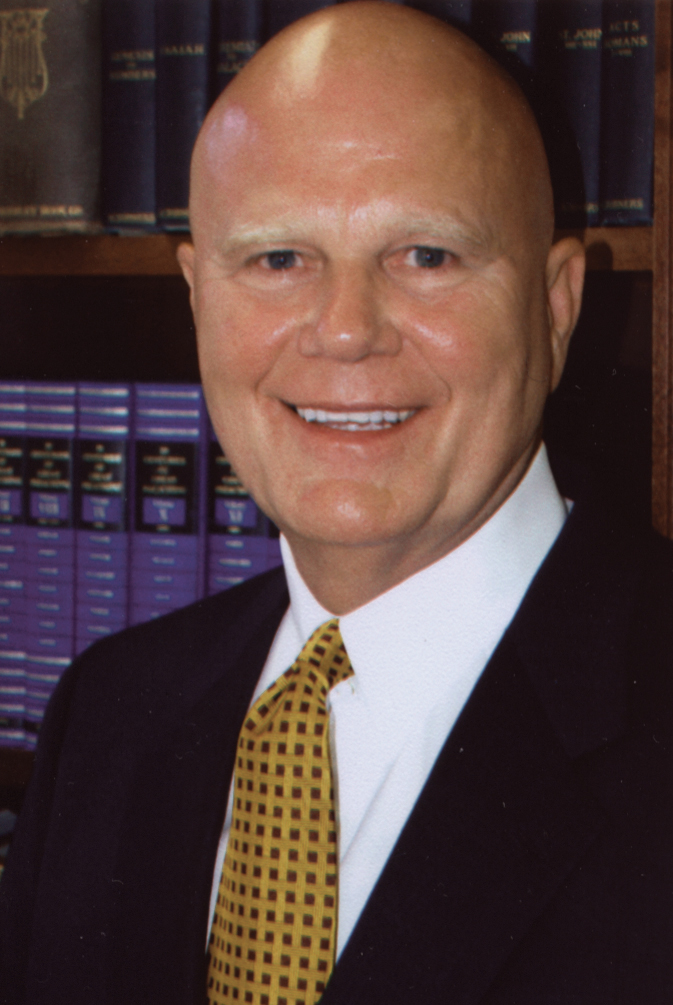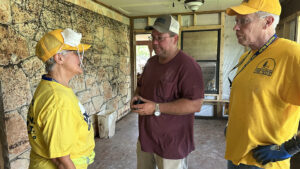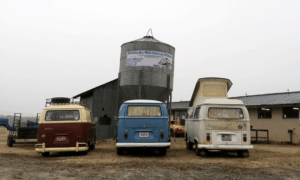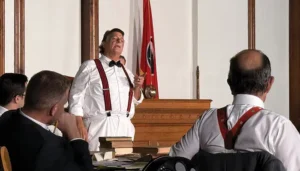
JACKSON, Miss. (BP)–Through the years, I have known several ladies named Katrina. My clearest recollection is that every one of them, without exception, was a sweet and gracious person.
However, on Aug. 29, 2005, a hurricane named Katrina came to the south shore of the United States. Since that late summer day, virtually every possible adjective that could be pulled into usage has been applied to her. Sweet, kind, gracious and gentle are not among them. She has a vocabulary of her own that includes such words as powerful, fierce, incredible, monstrous, huge and indescribable.
On this fifth-year anniversary, I would just add the word memorable.
Now, five years later, the work continues. In the year following Katrina, dozens of books were written and published that were filled with pictures of debris and devastation. Some were filled with hope and encouragement. Regardless of what the book contained, the incredible resilient spirit of so many people on the coast would stir your heart and place them on a pedestal among some of the most heroic people you could ever know.
Some destroyed homes have been rebuilt. Devastated businesses are back up and running. Families with nothing left are filling in some of the gaping holes, the vacuums of life.
Ken Murphy published a pictorial book the year following Katrina called, “My South Coast Home.” For me, it was one of the most meaningful and painful books that I saw. For whatever reason a few years prior to Katrina, Ken Murphy felt moved to document so many of the memorable places on the coast — buildings and businesses, homes and habitats, sunsets and sea creatures. He had no way of knowing that many of the things that he was photographing would not be in existence after Aug. 29, 2005. The buildings, bridges, church houses, historical homes, ports and restaurants are now all gone.
I have often sat and thought of all of the things that changed with Katrina. We lost much and we found much.
WHAT WE LOST
We lost population. There were people killed in the storm and that pain continues to be felt by families and friends until this present day. Population was lost because many who escaped the storm never came back. Many found work and community elsewhere and have not been able to meet the standards of rebuilding or were unable to pay the increased premiums for insurance.
I suppose the 2010 Census will tell the story. Up and down the battered coast, it is generally estimated that 25 to 35 percent of the people did not come back, and so the numbers in our church congregations reflect that same fact. Some of our strong churches continue to struggle to be sustained, not because people do not care but because the people are not there.
We also lost places. William Carey University, one of our Baptist-affiliated schools in Mississippi, lost almost everything on their coastal satellite campus. Mississippi Baptists lost our magnificent beachside conference center, Gulfshore Baptist Assembly near Pass Christian.
Churches by the scores were either destroyed, leaving nothing but a shell or a foundation, or so crippled they were unusable. Some of those places where we had met with God are no longer and are sustained only in our memories.
WHAT WE FOUND
In all of the losses, there are things that we found. We found the graciousness of people far and wide. Every state convention in the Southern Baptist Convention that has a disaster relief unit sent their teams to feed and care for us. Those Southern Baptists in Mississippi prepared and fed over 3.5 million meals just in our state. Nearly 1,200 churches across the northern part of our state and across the Southern Baptist Convention adopted churches and congregations, and have walked year after year through the process of restoration.
While many of these partnering churches and people simply wanted to help an individual church, others sent millions of dollars to help and just through the Mississippi Baptist Convention Board, over $21 million was given. That money went directly to rebuilding churches; supporting pastors, staffs and their families financially; and rebuilding and repairing homes all across the coast. People cared!
We also found flexibility. The next Sunday after Katrina many of our churches had no building to go to, so they gathered in whatever place they could find and many of them met outdoors. Prior to Katrina, some of our churches had all of the programs, bells and whistles that Baptist life and Christian growth would allow. Post-Katrina, most of the whistles were gone and many of the bells had stopped ringing. They did what they could, when they could, and wherever they could to meet, fellowship and grow in their walk with the Lord.
Because most of the people on the coast were in a survival mode, on Sunday they did as they did on other days. They got up and started cleaning up and helping others. At mid-morning on Sunday, many of them were working, hot and tired, and would pause to come to church wherever that was, still dressed in their work clothes. When the “Amen” was said, they were ready to go back to work.
I was blessed to attend some of those services. When I was in other parts of the state, I would tell them that the folks on the coast had stopped going to church on Sunday and they had started being the church seven days a week. The kind of flexibility they discovered was that there are many things in church life that we can do without, and even do better, to meet the needs of people if we are a little more flexible with each other.
A third thing we found was prioritizing. After Katrina came ashore, as soon as I could get to the coast I made my way to several of the feeding units that were in progress. I walked out on the fringe of the people who were gathering and met this dear precious older couple. They were holding hands and barely able to walk. Like thousands of others, they had a stunned glare on their faces. I asked them if I could help. They said, “Some people told us to come here and we might be able to get something to eat. This is the third day we have not had anything to eat.”
I said to them, “You have come to the right place.” They asked, “How much does it cost?” I said, “Absolutely nothing!” They said, “Well, where do we go?” I responded, “Come with me.”
Before they started walking across the parking lot, the two of them embraced and just stood there and cried. Then I held their hands and I walked over and asked the people there if we could get in the front of the line. They got their food and I helped them to sit down in the shade. They said, “Our house is gone and everything that we owned. We do not know what we are going to do for food tomorrow.” I said, “Well, I can tell you what you are going to do. You are going to come back here and these folks are going to help you and feed you so you do not need to worry about that.”
Our priority is to do good things in the name of Jesus, to lift folks up that are down, and to put lives back together that literally have been ripped to shreds. It is who we are and it is what we do best. We are the closest to Him when we do what He asks us to do.
One last thing I noticed that we found over and over again, and that is God’s grace and love are sufficient indeed for whatever we face. Seeing the aftermath of Katrina, it was impossible to get your mind around it, much less to get your arms around it. Our God knew every need and has day after day and week upon week been there to provide care, love, restoration and hope.
For all of our Southern Baptist friends — the teams that came from Montana, the sweet folks who journeyed all the way from Hawaii, and the huge numbers who came from our own state of Mississippi and from Alabama, Georgia, North Carolina, South Carolina, Tennessee, Kentucky, Arkansas and Virginia — God readily used you. The people on the coast have been blessed by you and are forever indebted to you.
The Mississippi Gulf Coast will never again be like it was. Five years beyond Katrina it will never be the same, but it can be better. By God’s grace and power, we pray that it will be.
–30–
Jim Futral is executive director of the Mississippi Baptist Convention Board.
















